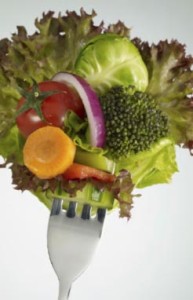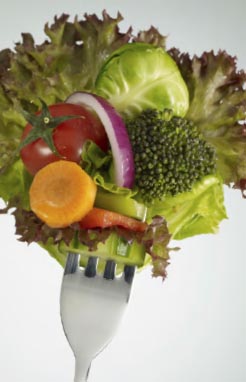ADHD, Athletes & Appetite Issues
Many teens and adults with attention deficit hyperactivity disorder (ADHD) are great athletes. In elementary school, they may not have been good at sitting quietly, but they certainly could excel at sports. Many found exercise had a calming, centering effect. With maturation, exercise still helps them get through their school/workday.
Athletes with ADHD often have trouble organizing an effective fueling protocol, including the basic tasks of shopping for and preparing food, as well as having the right foods available at the right times. This can create problems with low blood sugar (hypoglycemia) and hunger that gets disguised as inability to concentrate, stay focused on a task, edginess, hot temper, and reduced athletic performance. Athletes with ADHD often disregard these symptoms, thinking they relate to their ADHD diagnosis, not hunger and poor diet.
ADHD medications
Athletes with ADHD often take appetite-killing meds that easily disrupt normal fueling cycles and contribute to fluctuations in energy. Athletes need steady energy to be able to concentrate and perform at their best. Hence, athletes with ADHD need to vigilantly monitor their bodies for early signs of hunger, including feeling fatigued or moody. Some may seek an energy drink such as Red Bull or some coffee, but the solution is not caffeine. They need fuel!
When athletes with ADHD miss meals due to lack of planning, they often end up craving sweets—a sign the body is too hungry and wants a sugar-fix. They can then easily succumb to overindulging in cookies, candy, and other so-called “junk foods.” This may happen at 10:00 pm, after their appetite-suppressing meds have worn off, and this can disrupt normal sleep patterns, as well as kill their appetite for their breakfast and that perpetuates a bad eating cycle.
What’s an athlete with ADHD to do?
The information below is helpful for any athlete – not just those with ADHD…
- Take mealtimes seriously. If you can find the time to train and compete, you can also find the time to fuel right. In fact, all competitive athletes who don’t show up for meals might as well not show up for events. Everyone loses his or her competitive edge with hit-or-miss fueling.
- Fuel your body on a regular schedule by eating even-sized meals at least every four hours. If meds curb your appetite, plan to eat by the clock, and not by (non-existent) hunger. If necessary, set the alarm on your watch or cell phone. If the sight or small of food makes you nauseous, try cold beverages such as a fruit smoothie with additional protein powder.
- Organize your eating into four “food buckets.” Consume the contents of a bucket every four hours, either as a meal (Breakfast, Early Lunch, Late Lunch, and Dinner) or as smaller mini-meals based on wholesome foods, not sweets.
For most athletes, each meal/food bucket should be the caloric equivalent of two or three slices of pizza. That’s about 500 to 800 calories per bucket (or 2,000 to 3,200 calories per day), depending on your body size, sport, and energy needs. For athletes on appetite-curbing ADHD meds, the breakfast bucket should be the biggest bucket and incorporates some of the lunch calories that will otherwise get left uneaten.
The following sample menu has 4 food buckets that offer a steady supply of energy for an ADHD high school athlete:
| Time | Bucket | Sample meal |
| 7:00 | Breakfast | Bagel + peanut butter + tall glass milk + banana OR 3-egg omelet (lowfat cheese,veg) + toast + fruit Better bet if unable to stomach all of lunch: Bagel & peanut butter + omelet + milk + banana |
| 11:00* | Lunch #1 | Tuna sandwich/whole wheat bread + string cheese + milk |
| 3:00* | Lunch #2 | Pre-exercise: Energy bar + apple Recovery: Dried fruit & nuts + pretzels |
| 7:00 | Dinner | Chicken + brown rice + veggies + milk |
* Remember: If you take ADHD meds, you may not feel hungry but your body still needs fuel. Figure out what you can eat, regardless!
• Eat BEFORE your appetite-killing meds kick in. Again, figure out how to front-load your calories. For example, one athlete with ADHD started eating a hearty sandwich for breakfast. Another enjoyed “planned overs” from dinner the night before. By front-loading, they felt calmer during the day, had better workouts in the afternoon, and were better able to focus on the task at hand.
 • Plan to fill your food buckets with foods in their natural state, and limit your intake of highly processed foods. Some health professionals believe additives and food coloring in processed foods can trigger hyperactivity in certain people. Plus, highly processed foods often offer less nutritional value and fewer health benefits. Shop for fresh foods along the outside aisles of the grocery store: fresh fruit, vegetables, lean meats, low fat dairy, and whole grain breads.
• Plan to fill your food buckets with foods in their natural state, and limit your intake of highly processed foods. Some health professionals believe additives and food coloring in processed foods can trigger hyperactivity in certain people. Plus, highly processed foods often offer less nutritional value and fewer health benefits. Shop for fresh foods along the outside aisles of the grocery store: fresh fruit, vegetables, lean meats, low fat dairy, and whole grain breads.
• Include a protein-rich food in each food bucket, such as eggs, cottage cheese, peanut butter, lowfat cheese, Greek yogurt, turkey/cheese roll-ups. Again, nothing is wrong with having dinner for breakfast; enjoy that cheeseburger and oven-baked “French fries” and then roll the scrambled eggs and cheese into a wrap for lunch. Protein is satiating and helps stabilize blood sugar. A trail mix made with nuts and dried fruit is another option with compact calories for easy nibbling.
• Make a shopping list before you go to the grocery store, and shop after having eaten a meal. That enhances your chances of choosing more of the best sports foods, and less of the rest. Examples include: orange juice rather than sports drink; oranges instead of orange juice; oatmeal (served with a little honey) instead of frosted flakes (with a lot of sugar); whole-wheat bread rather than white bread; scrambled eggs instead of Eggo waffles; baked potatoes in place of French fries; plain yogurt sweetened with maple syrup instead of pre-sweetened yogurt; trail mix rather than M&Ms; protein bars rather than candy bars.
Not only for athletes with ADHD
If you find yourself edgy and unable to focus in the afternoon, experiment with reorganizing your meals and snacks into four (calorically-equal) food buckets and notice the benefits: better focus, fewer cravings for “sweets”—and better performance.
For more information about management of ADHD in kids and adults: http://www.additudemag.com
Reprinted from The Athlete’s Kitchen, August 2014
Copyright: Nancy Clark MS RD CSSD
Boston-area sports nutritionist Nancy Clark, MS, RD counsels both casual and competitive athletes. Her private practice is in Newton, MA; 617-795-1875). For information about her new Sports Nutrition Guidebook, 5th edition, see nancyclarkrd.com. For online education, also see sportsnutritionworkshop.com.

